SCAM ALERT: We urge customers to be wary of phone calls and texts that appear to be from Auswide Bank. If you ever have any concerns about an incoming call you have received from someone claiming to be from Auswide Bank, hang up and contact us directly on 1300 138 831. We will never ask for your password, card PIN or SMS verification codes. Learn more about scam awareness here.
Whether this is your first or your fifth investment property, we've put together some helpful tips for navigating the common upfront costs you might encounter when purchasing a house, and a few reasons why you might choose to have your home loan with Auswide Bank. If you prefer talking with someone face-to-face or over the phone, our Lending Consultants are always here to help you through to process.
A building and pest inspection will determine the condition of the property and most importantly, it’s structural integrity. If the inspector finds a number of concerns such as asbestos, termites, cracks or drainage issues you might decide not to proceed with the purchase or request a reduction in the price.
Lenders Mortgage Insurance is a one-off premium that you can pay upfront or as part of your loan and is designed to give those with a lower deposit an opportunity to buy a property.
Essentially, LMI protects the lender if you are unable to pay for your loan in the future and is calculated based on the size of your deposit and how much you need to borrow. The best way to avoid paying LMI is to have a deposit of at least 20% of the property purchase price.
A loan application or establishment fee is a one-off payment per application, which may also include a valuation fee.
When buying or selling a home, a conveyancer or solicitor will arrange documentation for your sale or purchase. Often this includes preparation of the contract, title searches and organising settlement costs.
A mortgage registration fee is a government fee paid during settlement when a mortgage is established (buyer) or when the mortgage is discharged against the property (seller). The fee register’s the physical property as the security on the home loan, allowing any future buyers to check claims that may exist on the home.
A transfer fee, also required by the state government, covers the transfer of title of the property from one party to another.
Stamp duty, sometimes called transfer duty, is a tax charged by the state government when buying a house or transferring to a new owner. It’s one of the more expensive costs you will incur outside of the property purchase price and the amount paid can vary greatly depending on the price of the property and which state or territory you live in. If you’re a first-time home buyer, you may be eligible for stamp duty exemptions or concessions which can significantly reduce the cost.
When you purchase an apartment or townhouse within a development, you will generally incur body corporate fees, which go towards the management and maintenance of the building or complex. Body corporate fees can vary depending on a few factors but may take into account the services provided and the type of dwelling.
Once you have your investment property and you’re ready to have tenants move in, you’ll likely consider the help of a property manager who will, as their title suggests, manage your property. This often includes listing your property, screening applicants, managing tenant maintenance requests and rent collection.
Landlord insurance is designed to cover the cost of replacement or repair needed when certain events occur that damage your residential investment property. It can also cover any contents you provide for your tenant’s use that could leave you out of pocket. Find out more about Auswide Bank Landlord Insurance.
Have some questions?
We’re here to help.



